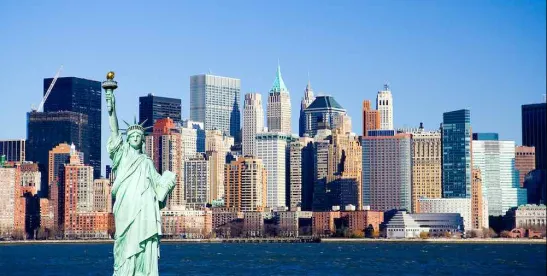Effective as of March 20, 2024, New York City law permits “any person” to initiate a private right of action for violations of the Earned Safe and Sick Time Act (“ESSTA”). The new law amends Section 20-924 of the New York City Administrative Code and allows employees to file a lawsuit alleging a violation of ESSTA within two years of the date the employee knew or should have known about the alleged violation.
Prior to the new amendment, employees seeking redress for violations of ESSTA were limited to submitting an administrative complaint to the New York City Department of Consumer and Worker Protection (“DCWP”). Now, any person alleging a violation of ESSTA may commence a civil action in court to seek redress directly. Employees who prove a violation of ESSTA may recover:
- Three times the wages that should have been paid pursuant to ESSTA or $250.00, whichever is greater, for each instance of safe and sick leave taken by an employee but unlawfully not compensated by an employer;
- $500.00 for each instance of safe and sick leave requested by an employee that was: (i) unlawfully denied by the employer and not taken by the employee; (ii) unlawfully conditioned upon searching for or finding a replacement worker; or (iii) unlawfully subjected to a mandate by an employer to work additional hours to make up for the original hours during which the employee was absent, without the mutual consent of the employer and employee;
- Full compensation, including wages and benefits lost, $500.00 and equitable relief as appropriate for each violation of retaliation and interference pursuant to Section 20-918 (excluding discharge from employment);
- Full compensation, including wages and benefits lost, $2,500.00 and equitable relief, including reinstatement, as appropriate for each instance of unlawful discharge from employment; and
- $500.00 for each employee covered by an employer’s official or unofficial policy or practice of not providing or refusing to allow the use of accrued safe and sick time in violation of ESSTA.
In addition, employees alleging a violation of ESSTA may seek injunctive and declaratory relief, attorneys’ fees and costs and other relief as the court deems appropriate.
Employees are not required to file a complaint with the DCWP prior to bringing a civil action, nor are employees barred from bringing a civil action if they file with the DCWP. However, if an employee files a complaint with the DCWP and commences a civil action for the same alleged violation, the DCWP will stay the investigation until the DCWP is notified that the civil action has been withdrawn or dismissed without prejudice. Upon notice of a final judgment or settlement in the civil action, the DCWP will dismiss the complaint unless the DCWP determines that the complaint alleges a violation not resolved by such judgment or settlement. The employee must notify the DCWP, in a manner prescribed by the commission and described on the DCWP’s website, within 30 days of the date that the time for any appeal has lapsed that such complaint is withdrawn, dismissed without prejudice or resolved by final judgment or settlement. Nothing under this new amendment will affect the authority of the DCWP to open an investigation on its own initiative.
In light of this recent amendment, employers in New York City should revisit their safe and sick leave policies to ensure compliance. Supervisors, human resources personnel and leave administrators should also be trained on the expanded scope of ESSTA.




 />i
/>i
